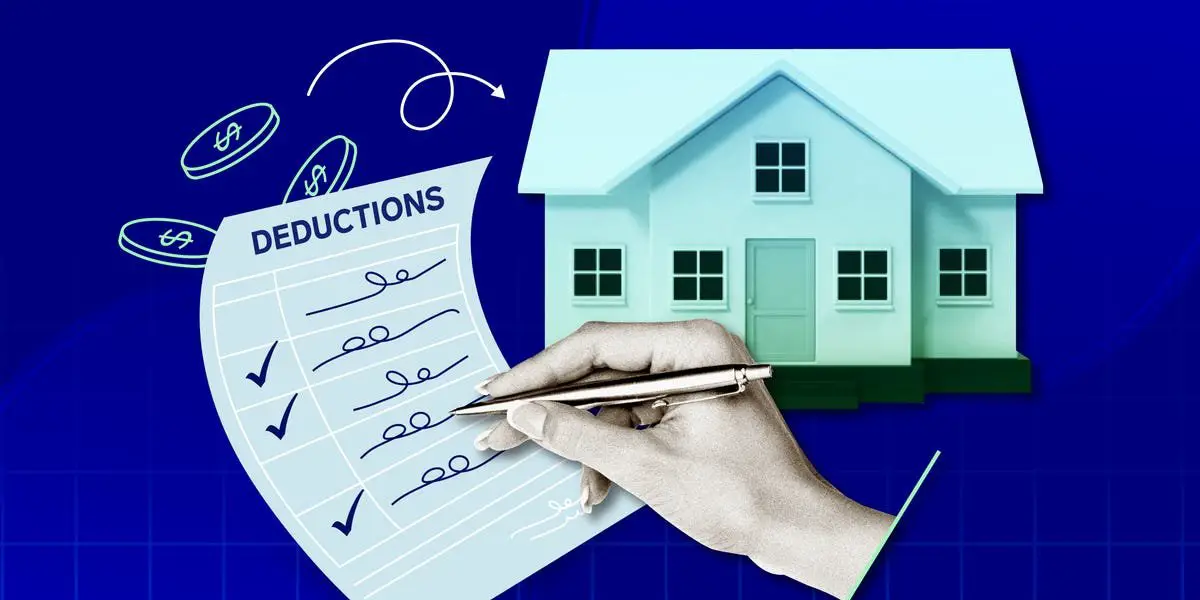Looking for ways to save money on your homeowner expenses? Wondering how to maximize deductions as a homeowner? You’ve come to the right place! In this article, we’ll explore some practical tips and strategies that will help you make the most of your deductions, ultimately saving you money. From understanding the different types of deductions available to homeowners to leveraging tax incentives, we’ve got you covered. So, let’s dive in and discover how to maximize deductions as a homeowner!
How to Maximize Deductions as a Homeowner
As a homeowner, you have the opportunity to take advantage of various tax deductions that can help reduce your overall tax burden. These deductions can significantly impact your financial situation and provide you with significant savings. In this comprehensive guide, we will delve into the different ways you can maximize deductions as a homeowner, ensuring that you have a solid understanding of the available options.
1. Mortgage Interest Deduction
One of the most significant deductions available to homeowners is the mortgage interest deduction. This deduction allows you to subtract the interest you pay on your mortgage from your taxable income. Here are the key points to consider:
- Eligibility: To qualify for this deduction, you must itemize your deductions on Schedule A of your tax return. This means you must forego the standard deduction and provide a detailed breakdown of your expenses.
- Primary Residence: You can deduct the interest paid on your primary residence mortgage, as long as the loan is secured by the property.
- Loan Limit: The mortgage interest deduction is limited to interest paid on mortgage loans up to $750,000 for most homeowners. However, if you purchased your home before December 15, 2017, the limit is $1 million.
- Second Home: If you have a second home, such as a vacation property, you can also deduct the mortgage interest on that loan, subject to certain limitations.
Additional Considerations for Mortgage Interest Deduction:
- Refinancing: If you refinance your mortgage, the mortgage interest deduction still applies as long as the proceeds are used to improve the home or acquire the home. However, if you use the refinancing to pay off other debts or for personal expenses, the deduction may be limited.
- Home Equity Loans: Under the Tax Cuts and Jobs Act of 2017, the deductibility of interest on home equity loans is limited. You can only deduct the interest if the funds are used to buy, build, or substantially improve the home that secures the loan.
- Private Mortgage Insurance (PMI): If you pay PMI on your mortgage, you may also be eligible to deduct these premiums as long as your income falls within specific limits.
2. Property Tax Deduction
Another valuable deduction for homeowners is the property tax deduction. This deduction allows you to deduct the amount you pay in property taxes from your taxable income. Here’s what you need to know:
- Eligibility: Similar to the mortgage interest deduction, you must itemize your deductions to claim the property tax deduction.
- Primary Residence: You can deduct property taxes paid on your primary residence.
- Second Home: Property taxes paid on a second home are also deductible, subject to the overall limitations on the deduction.
Additional Considerations for Property Tax Deduction:
- Deduction Limit: The Tax Cuts and Jobs Act of 2017 limited the total amount of state and local taxes that can be deducted. This includes property taxes, income taxes, and sales taxes. The cap is set at $10,000 for both single and married taxpayers.
- Assessments: In addition to regular property taxes, certain assessments for improvements or local services may be deductible. However, fees for specific benefits, such as trash collection or water, are generally not deductible.
3. Home Office Deduction
If you use a portion of your home exclusively for business purposes, you may be eligible for the home office deduction. This deduction allows you to deduct expenses related to the portion of your home used for business. Consider the following:
- Eligibility: To qualify for the home office deduction, you must use a part of your home regularly and exclusively for business purposes.
- Types of Businesses: The home office deduction is available for both self-employed individuals and employees who work from home for the convenience of their employer.
- Simpler Option: The simplified option for claiming the home office deduction allows you to deduct $5 per square foot of your home office space, up to a maximum of 300 square feet.
- Regular Method: Alternatively, you can use the regular method, which involves calculating actual expenses and allocating them between personal and business use.
Additional Considerations for Home Office Deduction:
- Exclusive Use: The area designated as a home office must be used solely for business purposes. It should not be used for personal activities or other purposes.
- Record Keeping: Maintain proper records and documentation to support your home office deduction, including receipts and a detailed log of business activities conducted at home.
- Depreciation: If you own the home, you may be eligible to claim depreciation on the portion of the home used for business purposes. Consult a tax professional for guidance on this complex aspect.
4. Energy Efficiency Credits
Homeowners who make energy-efficient improvements to their homes may qualify for valuable tax credits. These credits directly reduce your tax liability, making them highly beneficial. Consider the following:
- Residential Energy Property Credit: This credit allows you to claim a percentage of the cost of qualifying residential energy-efficient property, such as solar electric systems, solar water heaters, and geothermal heat pumps.
- Non-Business Energy Property Credit: This credit covers certain energy-efficient improvements like adding insulation, energy-efficient windows, doors, and roofs.
Additional Considerations for Energy Efficiency Credits:
- Specific Criteria: To qualify for energy efficiency credits, the improvements must meet specific criteria and be certified by the manufacturer. Always check the latest IRS guidelines for eligible installations.
- Residential Renewable Energy Tax Credit: This credit offers a more substantial benefit for homeowners who install solar energy systems or wind turbines. The credit is a percentage of the total system cost, including installation.
- State and Local Incentives: In addition to federal tax credits, various states and local municipalities offer additional incentives for energy-efficient improvements. Research potential programs in your area to maximize your savings.
5. Home Improvement Expenses
While not direct deductions, certain home improvement expenses can increase your basis in the home. This can provide long-term tax benefits when you sell the house. Consider the following:
- Home Improvements: Expenses incurred to improve your home’s value, such as adding a new roof, remodeling the kitchen, or finishing the basement, can be added to your home’s basis.
- Basis and Capital Gains: When you sell your home, the increased basis reduces the capital gains, resulting in lower taxable gains or potentially no taxable gains at all if you meet the exclusion criteria.
Additional Considerations for Home Improvement Expenses:
- Keep Records: Maintain thorough records of all home improvement expenses, including receipts, invoices, and any relevant contracts.
- Sale Exclusion: To qualify for the home sale exclusion under IRS rules, you must have owned and used the home as your primary residence for at least two of the previous five years. The exclusion allows you to exclude up to $250,000 of profit ($500,000 for married couples) from taxable income.
As a homeowner, maximizing deductions can have a significant impact on your tax liability. By understanding the available deductions and credits, such as the mortgage interest deduction, property tax deduction, home office deduction, energy efficiency credits, and home improvement expenses, you can effectively reduce your taxable income and increase your overall tax savings. It’s essential to consult a tax professional or utilize tax software to ensure you are taking full advantage of these deductions and credits specific to your situation. Remember, every dollar saved through deductions is money that stays in your pocket.
Top 5 Tax Deductions for Homeowners| MAXIMIZE Your Tax Refund
Frequently Asked Questions
Frequently Asked Questions (FAQs)
1. How can I maximize deductions as a homeowner?
As a homeowner, there are several ways you can maximize deductions on your tax returns. Some strategies include claiming the mortgage interest deduction, deducting property taxes, taking advantage of home office deductions, and utilizing energy-saving tax credits.
2. What is the mortgage interest deduction and how can I benefit from it?
The mortgage interest deduction allows homeowners to deduct the interest paid on their mortgage loans. By itemizing your deductions on your tax return, you can reduce your taxable income, potentially resulting in a lower tax bill.
3. Can I deduct property taxes as a homeowner?
Yes, homeowners are eligible to deduct property taxes paid on their primary residence or any other properties they own. Be sure to keep records of the amount paid and consult with a tax professional to determine your eligibility for this deduction.
4. Are there any deductions available for home office expenses?
Yes, if you use a part of your home exclusively for business purposes, you may be eligible to deduct certain home office expenses. This can include a portion of your rent or mortgage interest, utilities, and maintenance costs. Consult with a tax professional to ensure you meet the IRS criteria for this deduction.
5. What are energy-saving tax credits for homeowners?
Energy-saving tax credits are incentives provided by the government for homeowners who make energy-efficient upgrades to their homes. Examples include installing solar panels, energy-efficient windows, or upgrading insulation. These credits can help reduce your tax liability while promoting sustainable living.
6. Can I deduct home improvement expenses?
In general, home improvement expenses are not directly deductible on your tax return. However, certain home improvements that are considered medically necessary for a disabled individual may qualify for a medical expense deduction. Consult with a tax professional for specific details regarding your situation.
7. Are there any deductions available for mortgage points paid?
Yes, homeowners can deduct mortgage points paid at the time of closing. Each point is equal to 1% of the loan amount. This deduction can be claimed in the year the points were paid or can be spread out over the life of the loan. Consult with a tax professional to determine if you qualify for this deduction.
8. How should I keep records of my home-related expenses to maximize deductions?
To maximize deductions as a homeowner, it’s crucial to maintain accurate records of your expenses. Keep receipts, invoices, and other relevant documents related to mortgage interest, property taxes, home office expenses, and energy-efficient upgrades. Additionally, consult with a tax professional to ensure you are properly documenting and claiming your deductions.
Final Thoughts
To maximize deductions as a homeowner, there are several key strategies you can employ. First, ensure you keep track of all your expenses related to your home, including mortgage interest, property taxes, and any home improvements. Second, consider taking advantage of tax credits such as the Residential Energy Efficient Property Credit or the Home Office Deduction. Third, explore the possibility of itemizing your deductions instead of taking the standard deduction, as this can further increase your tax savings. By being proactive and staying informed about the available deductions and credits, you can significantly reduce your tax liability as a homeowner.


